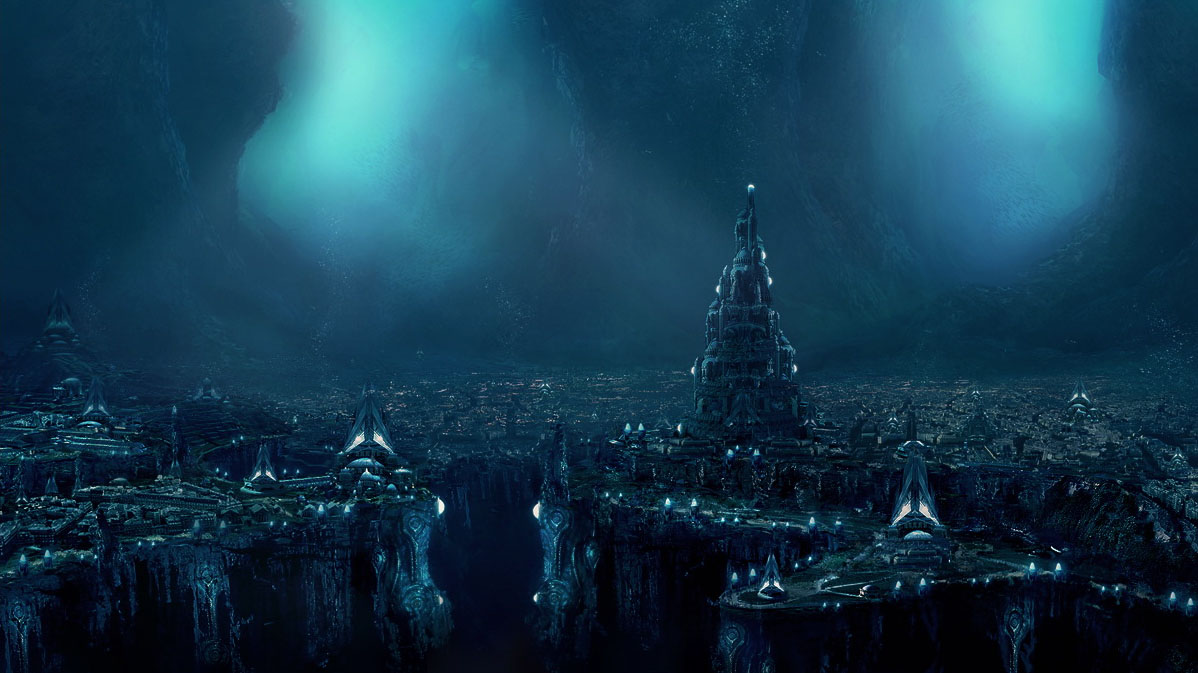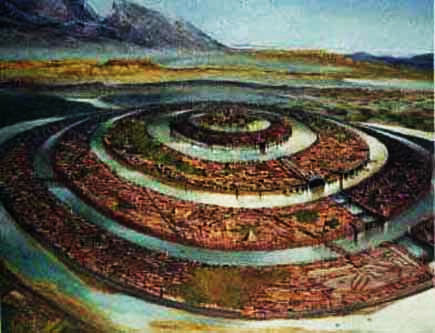
| Edgar Cayce |
| Crystal Technology |
| The Bermuda Triangle |
| Disney's Atlantis |
| Sources |
| Home |
According to Plato:
|
||
 "At the center of the island, near the sea, was a plain, said to be the most beautiful and fertile of all plains, and near the middle of this plain about fifty stades inland a hill of no great size... There were two rings of land and three of sea, like cartwheels, with the island at their center and equidistant from each other... in the center was a shrine sacred to Poseidon and Cleito, surrounded by a golden wall through which entry was forbidden..." |
Origin |
|
Atlantis was first mentioned in Plato's dialogue of "Timaeus" and "Critias" in 360 B.C. Plato wrote "Timaeus" when he was in his seventies and over-ripe with many life experiences. It is believed that "Timaeus" was the sequel to Plato's The Republic and that there was to be a third dialogue planned. Atlantis is generally viewed as a myth created by Plato to illustrate his political views. Atlantis was, to Plato, the perfect society. This would be held in stark contrast to today's view of the perfect civilization since Plato sneered at experimental science, glorified male homosexuality, and advocated a type of government that we call “fascist” or “technocratic". "But at a later time there occurred portentous earthquakes and floods, and one grievous day and night befell them, when the whole body of your warriors was swallowed up by the earth, and the island of Atlantis in like manner was swallowed up by the sea and vanished; wherefore also the ocean at that spot has now become impassable and unsearchable, being blocked up by the shoal mud which the island created as it settled down." Although his Atlantis made little stir at the time he wrote it, it became so popular in later centuries that to this day the name “Atlantis” evokes a picture of a beautiful world with a high and colorful culture (now, alas, gone forever) in the minds of thousands of people who never heard of Plato .
|
||
Created and Updated November, 2007
Questions or Comments?
Contact me at andreahutchinson_2011@depauw.edu